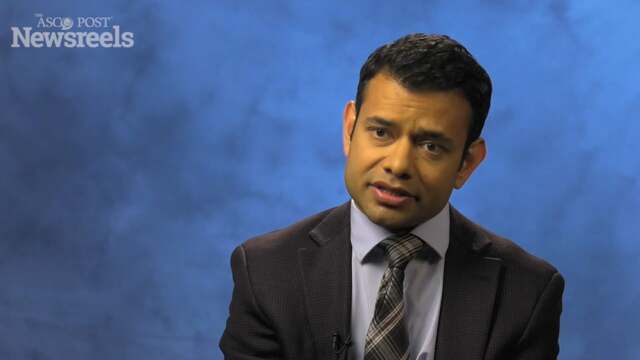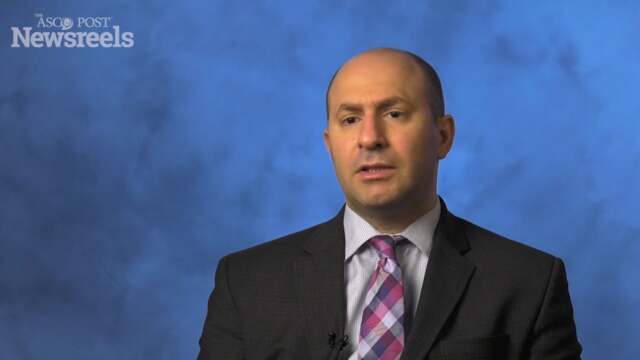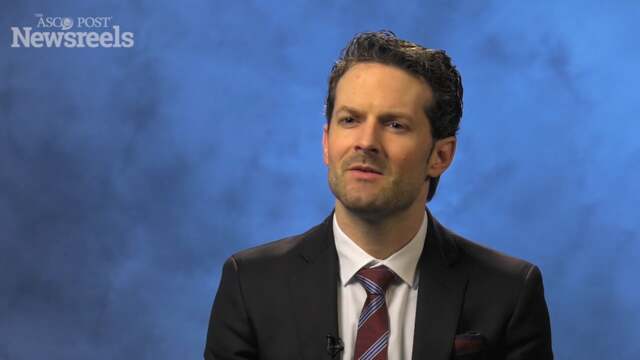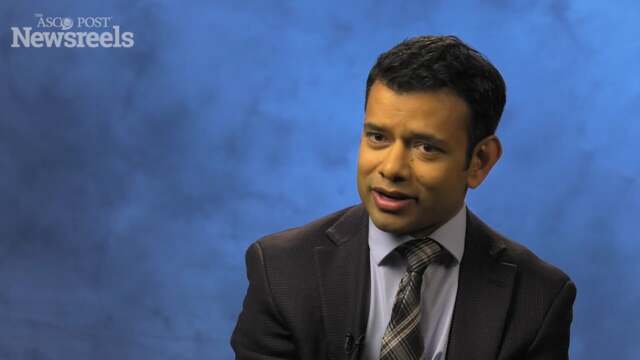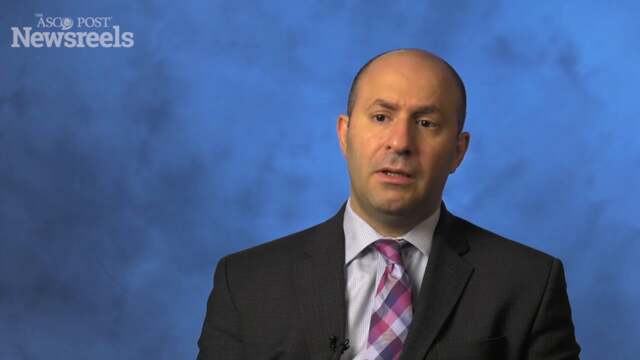Rana R. McKay, MD, on RCC: Continuing Benefit After Halting Treatment
2017 Genitourinary Cancers Symposium
Rana R. McKay, MD, of the University of California, San Diego, discusses study findings on PD-1/PD-L1 responders with metastatic renal cell carcinoma who discontinue therapy for immune-related adverse events. (Abstract 467)
Sumanta K. Pal, MD, of the City of Hope, discusses the evolution of circulating tumor DNA profile from first-line to second-line therapy in metastatic renal cell carcinoma. (Abstract 434)
Toni K. Choueiri, MD, of the Dana-Farber Cancer Institute, discusses a single-arm biomarker-based study of savolitinib in patients with advanced papillary renal cell cancer. (Abstract 436)
The
Roland Seiler, MD, of the University of British Columbia, discusses in German a way to identify molecular subtypes of muscle-invasive bladder cancer, the varying responses to cisplatin-based neoadjuvant chemotherapy, and which patients show the most benefit. (Abstract 281)
Sumanta K. Pal, MD, of the City of Hope, summarizes a session he co-chaired on the opportunities and challenges in systemic therapy for advanced renal cancer, including imaging as a biomarker of response and optimal selection of front-line treatments. (General Session 9)
Toni K. Choueiri, MD, of the Dana-Farber Cancer Institute, discusses study findings on apatorsen plus docetaxel vs docetaxel alone in platinum-resistant metastatic urothelial cancer. (Abstract 289)
